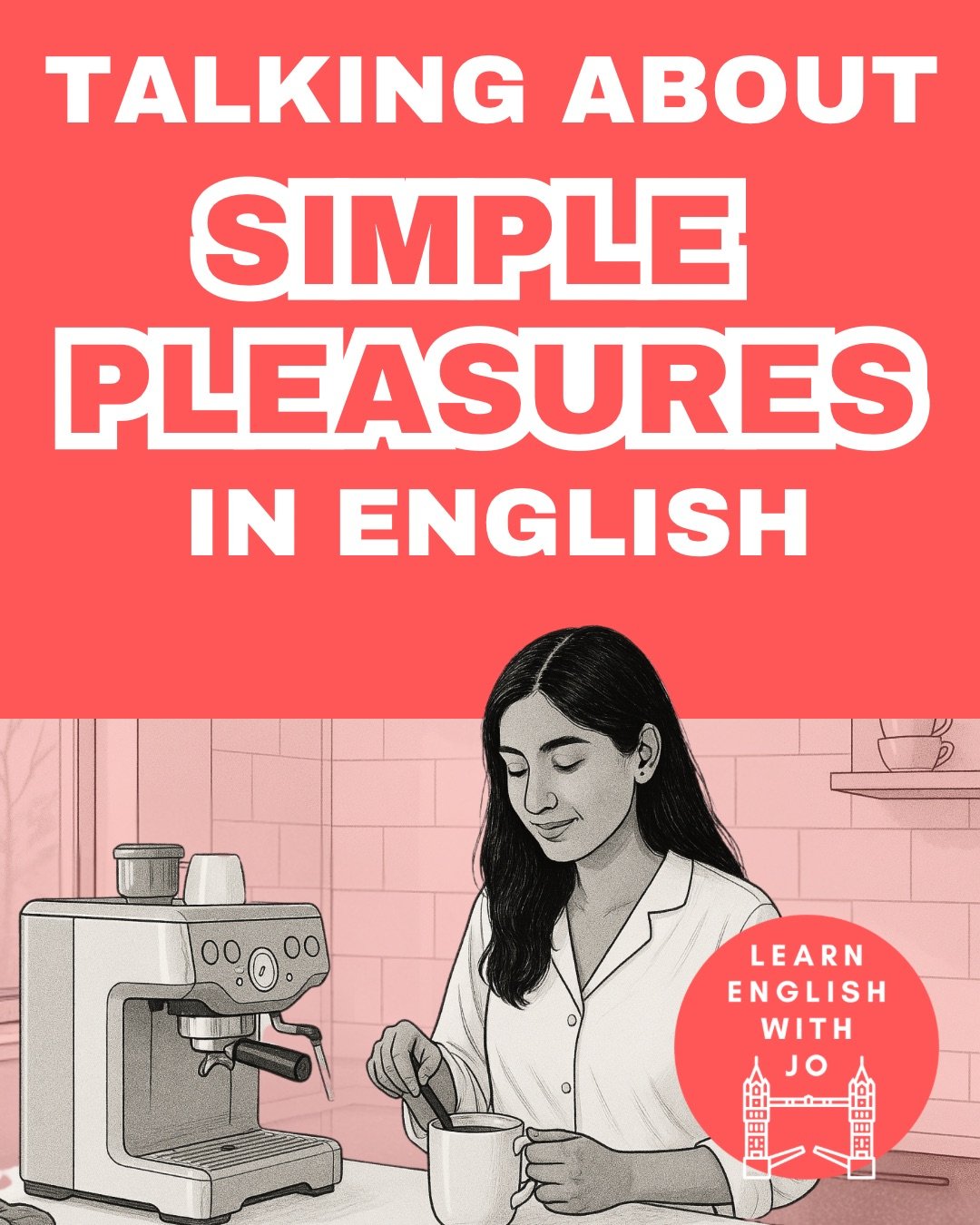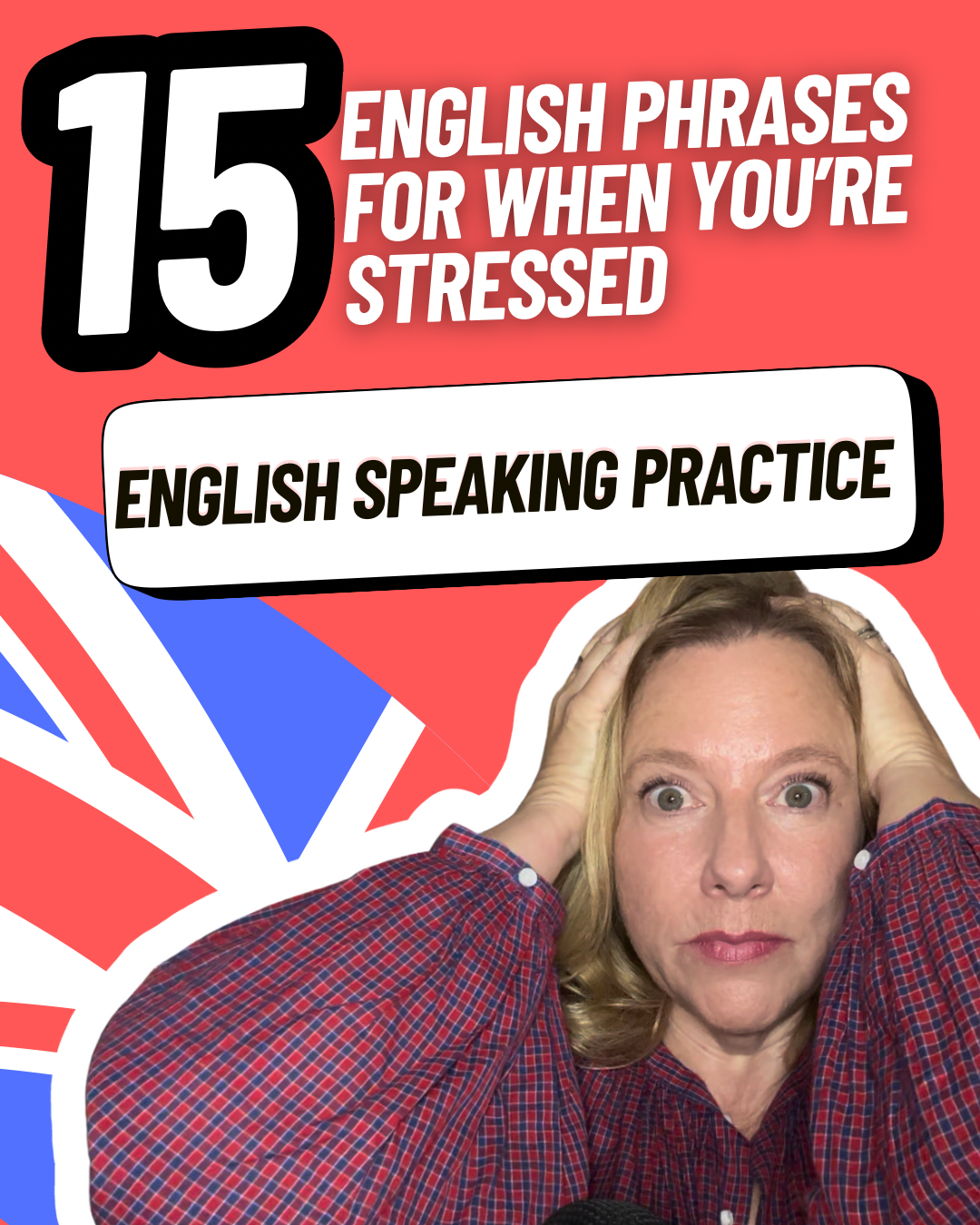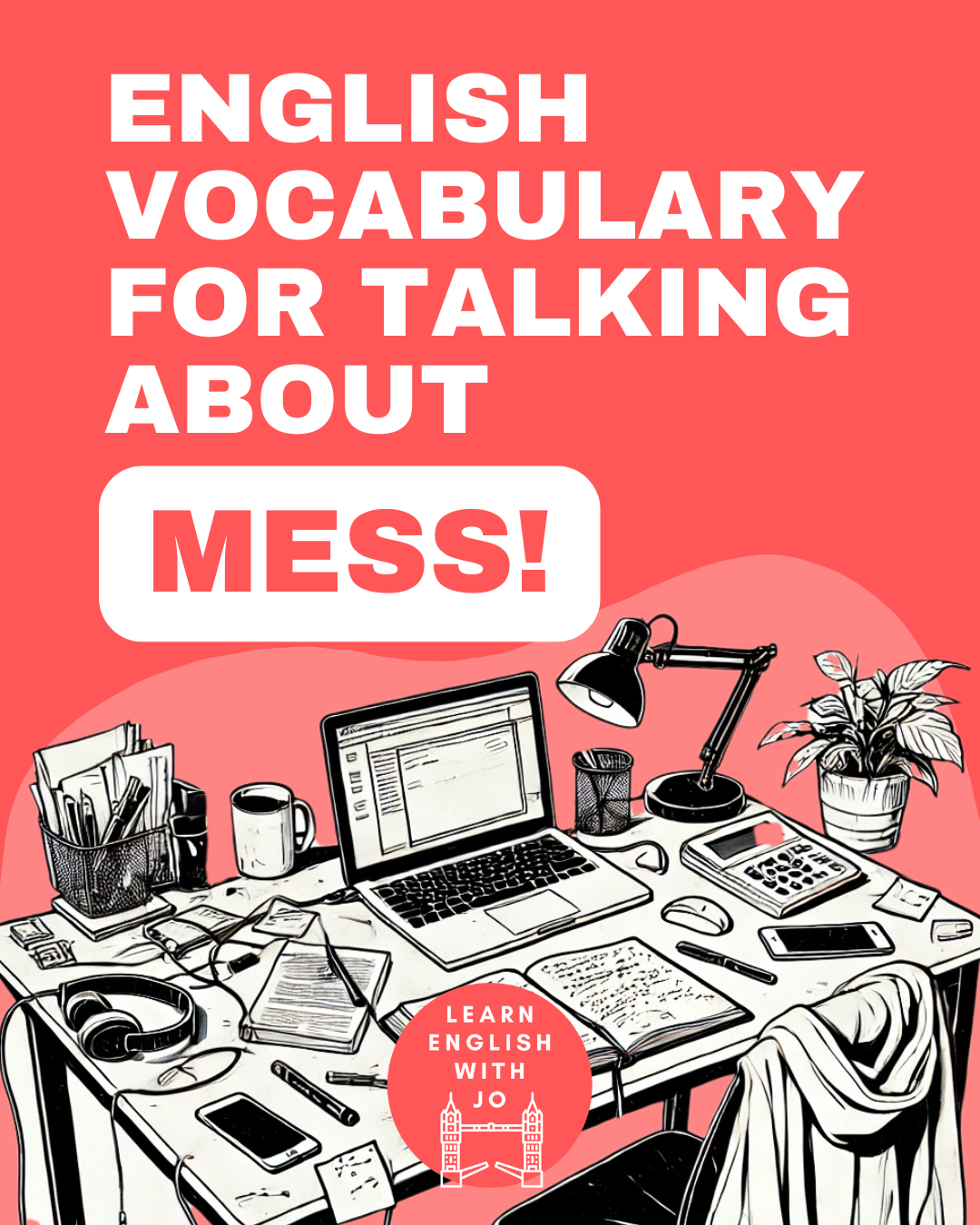Recent Posts

Idioms for Talking About Mistakes in English
Over the past week, I’ve had some lovely, honest chats with students about making mistakes. We’ve been talking about the little (and not-so-little) moments when things go wrong — a decision you regret, something you said that didn’t land well, or just one of those days where everything feels like a bit of a disaster.
Here are some of the English idioms we explored — they’re natural, expressive, and very useful for talking about the messy, imperfect bits of life in English.

5 Reasons That You’re Never Too Old To Learn English
Have you ever caught yourself thinking, ‘I’m too old to learn something new?’ Maybe you feel like your brain doesn’t work the way it used to. Or you compare yourself to younger learners—your kids, perhaps—and think, ‘They pick things up so quickly. What’s the point in me even trying?’
If that sounds familiar, then this blog is for you. Because here’s the truth: It’s not too late!

18 English Collocations with the Word ‘Idea’
Learn 18 useful English collocations with the word "idea" to improve your fluency and sound more natural in conversation. This vocabulary guide includes clear definitions, real-life examples, and tips on when to use each expression. Ideal for intermediate to advanced English learners who want to build confidence and speak like a native.

Why Your Mindset Matters More Than Talent (Especially When Learning English)
Welcome to another episode of my English podcast for people who want to feel more confident, more expressive, and more like themselves in English. Whether you're here to practise your listening skills, learn new vocabulary, or explore big ideas in a gentle, thoughtful way, you're in the right place.
This episode is all about something I believe can make a huge difference, not only in your English but in many areas of life: mindset. Don’t forget to download the free PDF for the full transcript and extras.

Talking About Simple Pleasures in English
Want to expand your vocabulary a bit and learn how to express yourself more naturally? You're in the right place.
In this post, we’re going to explore the language of simple pleasures — those small moments that bring a sense of peace, comfort, or joy to everyday life. We'll look at natural English expressions, emotion-rich adjectives, and sentence prompts you can use for journaling or English speaking practice.

Phrasal Verbs With Break And How to Use Them In Real Life
In this post, I’m sharing 12 common phrasal verbs with 'break' that you’ll hear all the time in everyday conversations. I’ve included clear meanings and real-life examples to help you feel more confident using them yourself.

12 Idioms to Talk About Surprise in English
Surprise comes in all shapes and sizes. Sometimes it's a lovely shock — like getting flowers from a friend out of nowhere. Other times, it’s the kind of surprise that leaves you frozen, confused, or even reeling.
Below, I’ve grouped 12 useful idioms for talking about surprise, so you can choose the right phrase for the situation — whether it’s amazement, disbelief, or sudden shock.

15 British English Phrases for When You’re Feeling Stressed
If you're learning English and want to sound more natural in everyday conversations, especially when life feels a bit overwhelming, this post is for you.
Here are 15 common British English phrases that people use when they're tired, overworked, or quietly not okay. These expressions are perfect for English speaking practice and will help you express yourself more clearly, more naturally, and more like yourself.

10 Daily Habits to Improve Your English
If you're trying to improve your English skills but feel overwhelmed by textbooks, lack of time or just don’t know where to start, this post is for you. Whether you're learning English for work, study, travel, or personal growth, building small, consistent habits can make a huge difference. So here are ten simple daily habits that can be included in your daily routine to can help you grow your fluency and confidence in English

English Vocabulary for Talking About Mess
Let’s be honest — we all have those days when the house is a mess, our to-do lists are chaos, or our brains feel completely scrambled. And sometimes we need just the right word or phrase to describe that mess — especially if we want to sound natural and fluent in English.
This post explores a range of vocabulary to describe untidiness, from gentle and polite to vivid and informal

Why Your English Isn’t Improving- The Intermediate Plateau
Do you ever feel like your English is just... stuck?
You’re not a beginner anymore, but fluency still feels far away. You practise regularly, you speak when you can, you study vocabulary—but it feels like you’re not making progress in English.
In this post, we’ll explore why your English isn’t improving—and more importantly, what you can do to keep moving forward.

How to Avoid Awkward Silences in English Conversations.
We’ve all been there. You’re having a conversation, and suddenly—silence. Nobody speaks, and the pause stretches on, making everyone feel uncomfortable. For English learners, these moments can feel especially stressful. But the good news is, you can learn strategies to handle awkward silences smoothly—without panicking!

How to Politely End a Conversation in English
We’ve all been in a situation where a conversation seems to drag on, and we’re not quite sure how to leave without seeming rude. Whether at a social event, a networking gathering, or a casual chat with an acquaintance, knowing how to exit a conversation smoothly is a useful skill. Here are five polite and natural ways to end a conversation in English without feeling awkward.

How to Get Better at Small Talk in English
Are you terrified of small talk? Does it feel awkward or pointless? In this blog, I break down how to master small talk in English, especially if you're learning it as a second language. You'll learn practical conversation starters, key phrases, and tips to make small talk feel more natural—even if you're an introvert like me!

English for Introverts: How to Speak Confidently Without Feeling Drained
Speaking English as an introvert can feel overwhelming. The thought of group classes, talking to strangers, and constant small talk may seem exhausting. However, becoming fluent in English does not mean you have to change who you are. Instead, you can use strategies that work with your personality, not against it.
This guide will explore effective language learning techniques tailored for introverts, helping you build confidence, improve fluency, and develop speaking skills at your own pace.

9 Ways to Say You’re Bad at Something – Speak English Like A Brit
Want to speak English like a Brit? In British English, we rarely say, 'I'm not good at something.' Instead, we use self-deprecating expressions and informal vocabulary that make us sound more natural, funny, and relatable! In this blog, you'll learn 9 essential British phrases to express when you're bad at something-whether it's sports, cooking, driving, or even small talk.

How Learning in Chunks Can Help You Speak English More Fluently
Do you ever find yourself hesitating, searching for the right words while speaking English? Do you worry about grammar mistakes and feel frustrated that your sentences don’t sound natural?
Many English learners face these challenges. Traditional methods focus on memorising individual words and grammar rules, but this often makes speaking slow and unnatural. The good news? There’s a better way—learning English in chunks.

22 English Idioms With ‘Hand’ And How To Use Them.
Until I started exploring English idioms with the word ‘hand’ I didn’t realise quite how much we use the word in idiomatic phrases and expressions. The word ‘hand’ pops up in so many English idioms (some of which I’ve probably neglected to include!) and quite often, the meaning isn’t as obvious as you’d expect. Amongst other things, we use hand idioms to talk about control, help, fairness, and even sneaky behaviour.

How to Speak English Confidently in Work Meetings
Speaking up in work meetings can be nerve-wracking, especially when English isn't your first language. Maybe you're worried about making mistakes, struggling to find the right words, or feeling like everyone else sounds more fluent. If that sounds familiar, you're not alone. Many people—native and non-native speakers alike—find meetings intimidating. But the good news? Confidence in meetings is a skill you can develop. Here’s how to approach it.

10 Common English Phrasal Verbs with ‘Play’
Phrasal verbs are a huge part of everyday English and mastering them can really boost your fluency. So today we’re going to explore 10 common phrasal verbs with ‘play’ that will help you sound more natural and confident when speaking English.
Whether you're playing along with a joke, playing up an achievement, or playing down a mistake, these handy little phrases add richness and depth to your communication. I’ve included clear definitions and real-life examples to help them stick in your mind!
